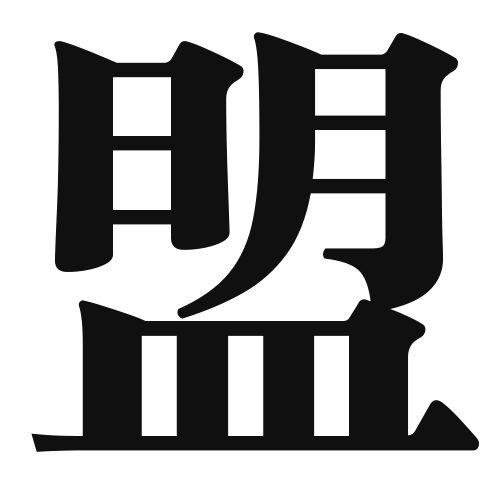1. Overview of Meaning
The kanji “盟” (mei) generally means “alliance” or “oath.” It signifies a formal agreement or bond between parties, often used in the context of treaties or partnerships.
2. Formation and Radical
Formation of the Kanji: The kanji “盟” is a compound character (会意文字) that combines elements to convey its meaning. It consists of the characters for “moon” (月) and “to bind” (合), symbolizing a binding agreement or oath.
Radical: The radical for “盟” is “月,” which is often associated with meanings related to time, cycles, and sometimes the body.
3. Examples of Usage
Common Words and Phrases: Some frequently used terms that include “盟” are “同盟” (dōmei – alliance) and “盟約” (meiyaku – pact).
Example Sentences in Daily Conversation:
- 私たちは新しいビジネスのために同盟を結びました。 (We formed an alliance for the new business.)
- この盟約は両国にとって重要です。 (This pact is important for both countries.)
4. Synonyms and Antonyms
Similar Kanji: A similar kanji is “契” (kei), which also means “contract” or “agreement,” but it often emphasizes the legal aspect of the agreement.
Opposite Kanji: An antonym could be “敵” (teki), meaning “enemy,” which represents opposition rather than alliance.
5. Cultural and Historical Background
Relation to Japanese Culture: The concept of “盟” is significant in Japanese culture, especially in historical contexts where alliances were crucial for political stability and warfare.
Proverbs and Idioms: One relevant proverb is “盟友は一生の友” (Meiyū wa isshō no tomo), which translates to “An ally is a lifelong friend,” highlighting the importance of loyalty in alliances.
